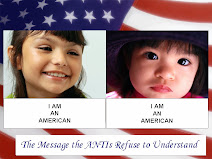Status: It is being ping ponged in the State Senate.
For a while last week, it appeared the State Senate came to its senses and tabled HB 12. The bill's Senate sponsor, state Sen. Tommy Williams, faced with intense opposition to this racial profiling bill, agreed to accept a committee substitute for HB 12 which essentially gutted the immigration-related language and replaced it with his SB 9, which is considered to be Texas' omnibus Homeland Security bill. The bill, however, was not put on the House calendar by the deadline last Sunday.
On Monday, however, Williams added a provision to SB 9 that mandates the implementation of the federal Secure Communities program in all local detention facilities. The program is administered by Immigration and Customs Enforcement and allows local law enforcement to compare the fingerprints of those arrested to a DHS database to determine if the individual can be deported. Williams attached this to HB 2734.
However, another report indicates Senate bill SB 9 made it out of the House Committee on Public Safety and Homeland Security on Friday and Williams subsequently made a motion to ping pong HB 12 with the sanctuary cities language intact during a later committee meeting. It was placed on yesterday’s Senate intent calendar, which means it can see floor action anytime before Wednesday’s (tomorrow's) deadline for the upper chamber to consider House bills.
With eight days remaining in the session, all eyes are on the 31-member Senate. The 12 Democrats can block HB 12 from reaching the floor for debate if the Senate follows tradition and requires two-thirds of the body needs to agree to get a bill to the floor. These Humanitarian Democrats have already distributed a letter to their colleagues urging a vote against the measure.
“We have concerns about racially profiling our citizens under the guise of cracking down on so-called 'sanctuary cities,'" the letter said. "There is a tremendous risk that such legislation would inadvertently target legal citizens of Texas, solely because they fall within a certain ethnic demographic.” See the full text of their letter here.
On Monday, however, Williams added a provision to SB 9 that mandates the implementation of the federal Secure Communities program in all local detention facilities. The program is administered by Immigration and Customs Enforcement and allows local law enforcement to compare the fingerprints of those arrested to a DHS database to determine if the individual can be deported. Williams attached this to HB 2734.
However, another report indicates Senate bill SB 9 made it out of the House Committee on Public Safety and Homeland Security on Friday and Williams subsequently made a motion to ping pong HB 12 with the sanctuary cities language intact during a later committee meeting. It was placed on yesterday’s Senate intent calendar, which means it can see floor action anytime before Wednesday’s (tomorrow's) deadline for the upper chamber to consider House bills.
With eight days remaining in the session, all eyes are on the 31-member Senate. The 12 Democrats can block HB 12 from reaching the floor for debate if the Senate follows tradition and requires two-thirds of the body needs to agree to get a bill to the floor. These Humanitarian Democrats have already distributed a letter to their colleagues urging a vote against the measure.
“We have concerns about racially profiling our citizens under the guise of cracking down on so-called 'sanctuary cities,'" the letter said. "There is a tremendous risk that such legislation would inadvertently target legal citizens of Texas, solely because they fall within a certain ethnic demographic.” See the full text of their letter here.
We'll be keeping our Eyes on the status of these bills and will provide an update as soon we know.









1 comment:
Modern Times Magazine in Arizona : SB 1070 in Supreme Court : "The Roberts court might be conservative, but they are still federalists. They will not uphold a state’s role as immigration cop" - "Hopefully, the court will finally kill SB1070"
Modern Times Magazine in Arizona -
Print editions distributed monthly -
Gov. Brewhaha Still Fighting For SB1070 -
Arizona Governor Skips Ninth Circuit Court Appeal And Takes Immigrant Legislation Directly To The Supreme Court
May 10, 2011
http://www.moderntimesmagazine.com/page16/AL_SB1070SCOTUSpetition_051011/AL_SB1070SCOTUSpetition_051011.php
Some excerpts :
The state of Arizona has until July 11, 2011, to file its official petition for certiorari with the U.S. Supreme Court. It will likely be late September or early October before the court announces whether it will hear the case.
A "petition for writ of certiorari" is filed with the Supreme Court when a party wants the court to review a decision of a federal or state court. A petition is printed in booklet format and 40 copies are filed with the Court. If the Court grants the petition, the case is scheduled for the filing of briefs and for oral argument.
A minimum of four of the nine Justices are required to grant a writ of certiorari, referred to as the "rule of four.” The court denies the vast majority of petitions and thus leaves the decision of the lower court to stand without review; it takes roughly 80 to 150 cases each term.
In 2009, for example, 8,241 petitions were filed, with a grant rate of approximately 1.1 percent. The Supreme Court is generally careful to choose only cases over which the Court has jurisdiction and which the Court considers sufficiently important, such as cases involving deep constitutional questions, to merit the use of its limited resources. The Supreme Court sometimes grants a writ of certiorari to resolve a "circuit split," when the federal appeals courts in two (or more) federal judicial circuits have ruled differently in similar situations. These are often called "percolating issues."
.
Post a Comment